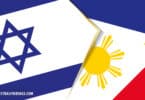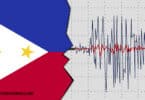The modern era has significantly changed how genealogical research is conducted, especially in the Philippines. With the advent of digital records and online resources, tracing Filipino ancestry has become more accessible than ever before. This article explores the various modern tools and techniques available to genealogists today.
The Shift to Digital Records
There has been a significant push to digitize records in the Philippines in recent years. This shift has made it easier for people to access vital documents such as birth, marriage, and death certificates and other important historical records.
Accessing Digital Records:
The Philippines’ primary source for digital records is the Philippine Statistics Authority (PSA), which manages civil registrations. Through the PSA Serbilis website, you can request certified copies of birth, marriage, and death certificates online. This service is particularly useful for those who live abroad or cannot visit local civil registry offices.
Another valuable resource is FamilySearch.org, which has digitized many records from the Philippines, including church and civil records. These can be accessed for free, providing a wealth of information for genealogists.
Where to Find Digital Records:
1. Philippine Statistics Authority (PSA) Serbilis: This online portal allows you to request official copies of civil registration documents. It’s a convenient way to obtain records without having to visit in person.
2. FamilySearch.org: Managed by the Church of Jesus Christ of Latter-day Saints, this site offers a vast collection of digitized records from the Philippines. These include church records, census data, and more.
3. Ancestry.com: Although primarily focused on Western countries, Ancestry.com has some collections of Philippine records, particularly those related to overseas migration and military records.Utilizing Online Genealogy Platforms
The rise of online genealogy platforms has revolutionized how people research their family history. These platforms offer access to records and tools for building family trees, connecting with distant relatives, and sharing research.
Best Platforms for Filipino Genealogy:
1. MyHeritage.com: Known for its extensive global reach, MyHeritage.com offers a range of Philippine records, including census data and immigration records. The site also allows users to connect with relatives who may have uploaded their family trees.
2. Geni.com: This platform focuses on collaborative genealogy, where users can contribute to and edit a shared family tree. It’s a great way to connect with distant relatives and expand your research.
3. AncestryDNA: For those interested in the genetic side of genealogy, AncestryDNA offers DNA testing that can reveal your ethnic origins and connect you with relatives based on shared DNA.The Role of Social Media and Online Communities
Social media has become an increasingly important tool in genealogy. Facebook groups, forums, and other online communities provide a space for genealogists to share resources, ask for help, and connect with others researching similar lines.
Engaging with Online Communities:
Several Facebook groups are dedicated to Filipino genealogy, where members share tips, resources, and even translations of old documents. These communities are invaluable for beginners and seasoned genealogists alike, offering support and guidance on various aspects of research.
Where to Connect with Other Genealogists:
1. Facebook Groups: Groups like “Filipino Genealogy Project” and “Philippine Genealogy Network” are excellent places to connect with others researching Filipino ancestry. Members often share records, help with translations, and discuss various research strategies.
2. Reddit: The r/genealogy subreddit has a diverse community of genealogists from around the world. While not specific to the Philippines, it’s a good place to ask questions and get advice on general genealogy topics.
3. Genealogy Websites’ Forums: Sites like FamilySearch and Ancestry have active forums where users can ask questions, share their findings, and get help with specific research challenges.Modern Challenges in Filipino Genealogy
Despite the advantages of modern technology, genealogists still face challenges when researching Filipino ancestry. One of the main issues is the incomplete digitization of records. While many records have been digitized, others remain only in physical form, often stored in local offices or archives that may be difficult to access.
Another challenge is the varying quality of digitized records. Some documents, particularly those that are handwritten or have been damaged over time, maybe poorly scanned, incomplete, or difficult to read.
Overcoming Modern Challenges:
To overcome these challenges, it’s important to use a combination of online and offline resources. While digital records provide a convenient starting point, visiting local archives or engaging with local historians can access documents that have yet to be digitized.
Additionally, contacting online communities for help with translations or interpretations can be invaluable when dealing with difficult-to-read records. Many experienced genealogists are willing to assist with reading old handwriting or deciphering obscure records.
Embracing the Future of Filipino Genealogy
Modern tools and technologies have opened up new possibilities for tracing Filipino ancestry. With the growing availability of digital records, online platforms, and social media communities, genealogists have more resources at their disposal than ever before.
However, while the convenience of modern technology is undeniable, it’s also important to remember the value of traditional research methods. Combining the old with the new—visiting archives, conducting interviews, and engaging with local historians—can provide a more comprehensive and accurate picture of your family history.
As you navigate the digital landscape of Filipino genealogy, remember that each record, whether found online or in a dusty archive, is a piece of the puzzle that makes up your unique heritage. The journey of discovering your ancestors is a blend of persistence, curiosity, and a bit of technological savvy, leading to a deeper connection with your roots.
Read More:






